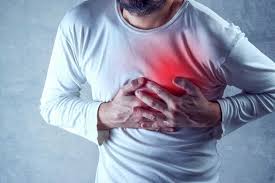Cardiovascular diseases (illnesses that affect the heart and blood vessels) are the LEADING cause of death WORLDWIDE, killing roughly 18 million people each year.
This information isn’t supposed to scare you, but it should make you pay attention to everything I’m about to say.
What you learn in this post might help you save a life.
So what is a Heart attack?
A heart attack (known as Myocardial infarction or MI) happens when there is a sudden loss of blood flow to the muscles of the heart.
A lack of blood supply to the heart can cause serious damage to the heart. As such, Heart attacks are a medical emergency.
Here are the causes of Heart attacks as well as the warning signs.
The most common cause of Heart attacks is what we call Coronary heart disease. This is a condition where the blood vessels that take blood to the heart get clogged with deposits of cholesterol called Plaques.
Most heart attacks happen when a plaque moves from its position & then blocks one of these blood vessels, thereby starving the heart of Oxygen & nutrients.
Other causes of a Heart attack are Coronary artery spasm (common in tobacco and illicit drug users) & Damage to the heart caused by Covid-19.
Not everyone having a heart attack has severe chest pain (especially women).
In some women, a heart attack might look like a sudden, severe case of Indigestion.
READ ALSO: At least 8 dead at Travis Scott’s Astroworld Festival in Houston
The common symptoms are :
Tightness/Pain/Squeezing/ Pressure/ Ache in the chest or arms. This sensation may spread to the neck, jaw of even the back.
Shortness of breath
Cold sweat and/or Fatigue
Nausea/Indigestion/Abdominal pain
Dizziness
If you suspect that someone is having a heart attack (including you), ACT IMMEDIATELY :
Call 112 or 199 or 767 (Nigeria ), 911 (US ) or 999 (UK )
If you can’t reach these services, quickly take the person in a car to the nearest hospital.
Give the person having a heart attack 300mg of Aspirin to chew and swallow (as long as the person is not allergic to aspirin).
Aspirin improves blood flow to the heart & is a must-have in every home.
Prevention is better than cure. To reduce your risk of having a heart attack, take these steps:
Quit smoking (honestly!)
Exercise regularly
If overweight, lose weight
Reduce alcohol intake
Eat healthily (add fruits & veggies)
We never wish for something as serious as a Heart attack, but it doesn’t hurt to be prepared.
You just might end up saving a loved one! ?













